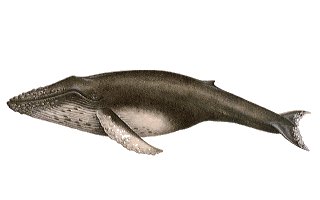Bodey, A.L., Almond, C.J. and Holmes, M.A. (2017) ‘Double-blinded randomised placebo-controlled clinical trial of individualised homeopathic treatment of hyperthyroid cats’, Veterinary Record, vol 180, p. 377 (doi:10.1136/vr.104007). [Visit RationalVetMed.org for full links]
‘Abstract… There were no statistically significant differences in the changes seen between the two treatment arms following placebo or homeopathic treatment… or between the means of each parameter for either treatment arm before and after placebo or homeopathic treatment… The results of this study failed to provide any evidence of the efficacy of homeopathic treatment of feline hyperthyroidism.’
§
Hyperthyroidism (an over-active thyroid gland) in cats is a nasty, insidious disease which, in a nutshell, turns the metabolism of affected cats up to eleven. Their heart starts to beat so fast it eventually fails, their energy consumption rockets so they develop a ravenous appetite, eating more food than ever before, yet they still lose weight. And they also get quite grumpy as a rule. But despite all this they can live untreated for a considerable while, although with serious quality of life issues.
Some homeopaths claim you can treat an overactive thyroid by using homeopathy or, more precisely, isopathy with nosodes prepared from ground up thyroid glands (which, by the way, is an example of ‘sympathetic magic’, along the lines of the medicine man spitting on the ground to bring rain or a voodoo priest sticking pins in an effigy of someone who is ill). These homeopaths are most charitably described as ‘mistaken’.

What happens when truly hyperthyroid cats are treated homeopathically (i.e. with nothing) is that they stuggle on for months and months with heart failure and weight loss, becoming increasingly uncomfortable and breathless yet all the time, like most cats, just appearing to sit around quietly rather than making a fuss, right up until the point they go into acute heart failure and die, often in some distress. And while this is happening the attending homeopath is either claiming success on the good days or claiming an ‘aggravation’ during the bad ones – ‘ever had your cat vaccinated, ever fed it commercially prepared cat food, ever given it any medicine, or flea or worm treatment? There you are then, it’s all your fault, it’s the toxins’, they’ll tell you as they trouser your hard-earned cash.
And it’s all nonsense – you cannot successfully treat an overactive thyroid with homeopathy or isopathy as this well conducted trial by statistical supremo Mark Holmes and crew shows.
Of course, the homeopaths are wingeing about it, as they always do when trials, no matter how well conducted, don’t give results they like, even when in this case homeopathic head honcho John Saxton personally gave his go ahead for the trial design.
The homeopathic practitioner, Chris Almond, who participated in the trial says he is expecting a hard time from his homeopathic colleagues – ‘I don’t think I am going to be very popular’ he complains in an article in the BSAVA Companion magazine. And then, in typical homeopathic fashion, the excuses start – having been a willing part of the trial for the whole six years it took to perform, cooperating at every stage and interpreting the answers from owners in response to an agreed questionnaire, once the results are published he suddenly changes his tune, ‘the quality of responses from clients in the questionnaire was often “pretty poor” and made it difficult for him to determine the best individualized treatment for each animal’. Furthermore, he has now decided ‘he was also uncomfortable with the three-week duration of therapy set in the trial protocol’ and, anyway (one can almost hear the stamping of tiny feet and the sound of toys being thrown out of prams by this stage), ‘the experience of participating in the study has shown him that the randomized controlled trial format is simply not suitable as a test of homeopathic methods’.
Well why didn’t he say something sooner, one might well ask? Could it be he was waiting just in case the results were favourable to homeopathy first, in which case the triumphalist cries from the vet homs would have been deafening? But that didn’t happen, the results were entirely in line with expectations and it looks like Mr Almond is currently being hung out to dry by his erstwhile colleagues for consorting with the devil and participating in a well run, methodologically robust trial along with two other veterinary surgeons who were completely independent of any vested interest. Really, what was he thinking!
I can do no better than to quote Andrew Bodey, the (conventional) veterinary practitioner whose idea it was to perform the trial in the first place, ‘If the purpose of your efforts is to justify your own opinions rather than to answer a legitimate question, then that is not going to work…‘
There’s no getting away from it, homeopaths are simply poor losers.
For full links to the original papers visit RationalVetMed.org.



